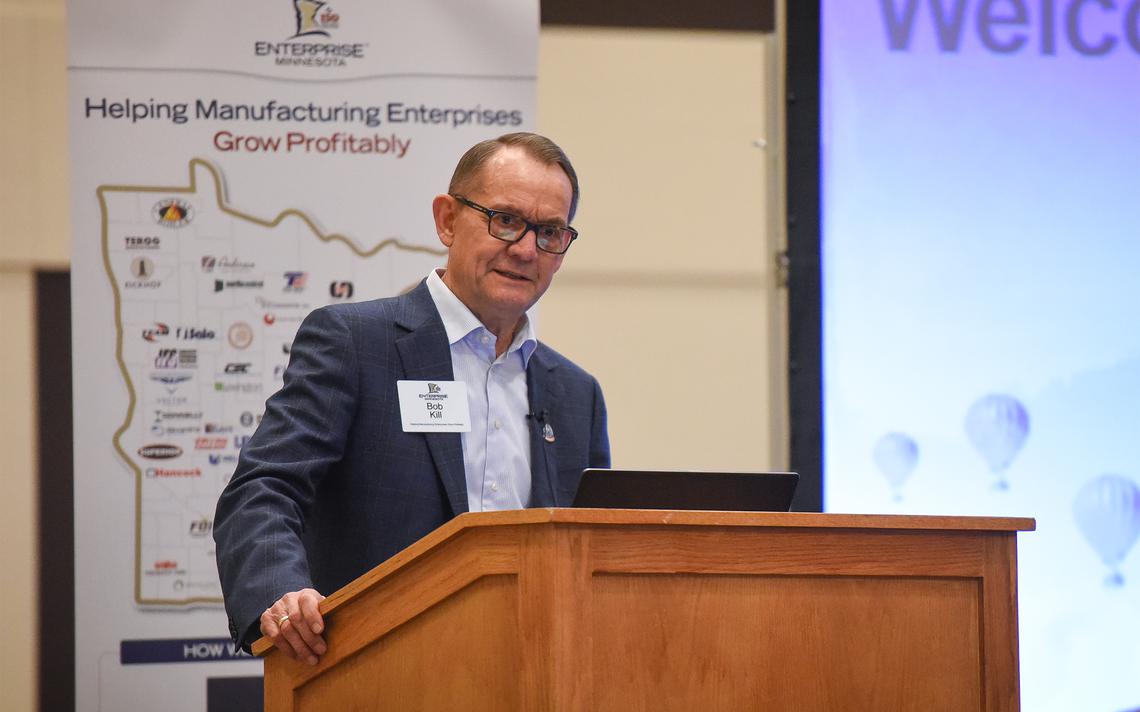Article originally published in Infoforum.
BEMIDJI, Minn. — While wages are on the rise, challenges remain for Minnesota’s manufacturers when it comes to hiring a qualified workforce.
In its annual State of Manufacturing survey, Enterprise Minnesota found 71% of respondents say the inability to hire qualified candidates has made company growth difficult. Regionally, that number was even higher, with 75% of manufacturing executives finding growth difficult because of a worker shortage.
According to Enterprise Minnesota’s website, the survey was conducted March 5-20 with 400 manufacturing executives taking part. During an event promoting the survey in Bemidji on Tuesday, organization leaders said 123 additional interviews were conducted to collect more information.
When it comes to the worker shortage, Enterprise Minnesota found the largest issue is attracting and retaining qualified workers. Ranking second in the survey was the cost of health care insurance and third was the increasing costs of energy and material.
The majority of respondents noted an increase in wages, though. According to survey results, 58% of respondents in 2019 said wages rose, while 37% said wages remained flat. Comparatively, in 2017, 49% said wages stayed the same and just 46% said wages rose.

“There are a lot of challenges in front of us. We were talking about this (the workforce) 15 years ago, 11 years ago, and we’re talking about it today,” Enterprise Minnesota President and CEO Bob Kill said Tuesday. “It’s not going to go away magically. But the power of private and public partnerships is what this event is about, and how we can share those types of partnerships with the rest of the state.”
During a panel at Tuesday’s event at the Sanford Center, AirCorps Aviation General Manager Erik Hokuf mentioned the importance of working with the education system to ensure skills training.
“One of the things we see that’s a challenge is many of the core technical training skills used to be developed at an early age,” Hokuf said. “Now, we’re trying to supplement that through education. It’s exciting for me to see the education system picking this up and identifying it. I don’t think it’s fully clicked yet, but seeing the career academy programs (at Bemidji High School) and work the technical college is doing is encouraging.”
The jobs listed as most in demand according to the survey shared Tuesday were machine operator and assembler.





